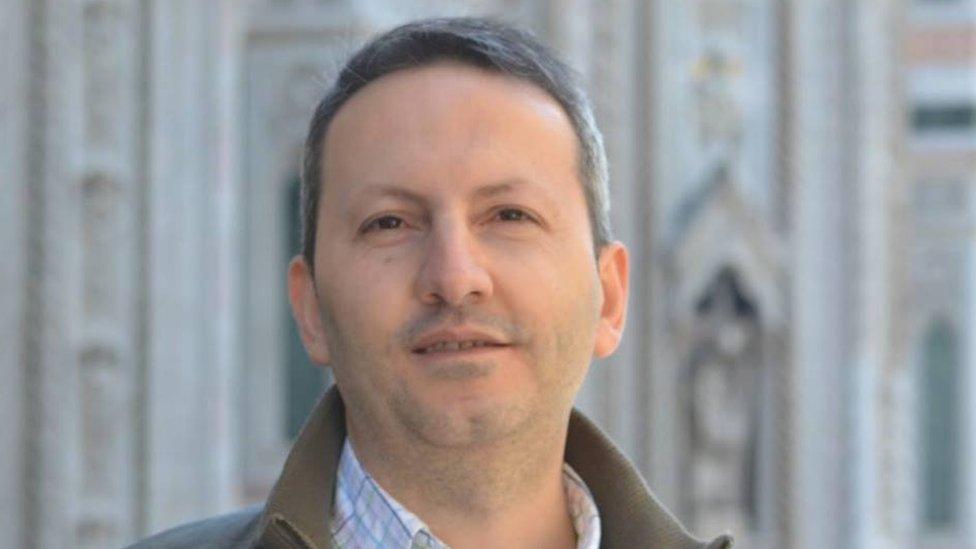Iran 'sentences Sweden resident to death' for spying
- Published

Ahmadreza Djalali says the accusations were fabricated by Iran's intelligence ministry
A court in Iran is believed to have sentenced to death an Iranian doctor who is a resident of Sweden after convicting him of spying for Israel.
Tehran's prosecutor said a person had been found guilty of passing to Israeli operatives the addresses of 30 nuclear and military scientists - two of whom were killed in bomb attacks in 2010.
He did not identify the person.
But the wife of emergency medicine specialist Ahmadreza Djalali said he had been convicted on similar charges.
Human rights group Amnesty International said, external it came after "psychological torture, false confessions and a grossly unfair trial".
Tehran prosecutor Abbas Jafari-Dowlatabadi told a meeting of judiciary officials on Tuesday that an unnamed "convict" had "given the address and particulars of 30 important people engaged in research, military and nuclear projects" to the Mossad spy agency, Iranian media reported.
He said the list included nuclear scientists Massoud Ali-Mohammadi, external and Majid Shahriari, who died in bombings in the capital in January and November 2010.
The prosecutor added that the convict had passed on the information to Israel in return for money and help in obtaining a Swedish residency permit.
On Monday, Amnesty International said it had been told by one of Ahmadreza Djalali's lawyers that he had been sentenced to death for "corruption on earth".
Zeynab Taheri said the court verdict stated that Mr Djalali had worked with the Israeli government and that it had helped him to obtain his residency permit in Sweden.
Amnesty said Mr Djalali, a doctor and lecturer at Stockholm's Karolinska Institute, was on a business trip to Iran in April 2016 when he was arrested by intelligence ministry officials and held without access to a lawyer for seven months, three of which were in solitary confinement.
Mr Djalali says that while in solitary confinement he was twice forced to make "confessions" in front of a video camera by reading out statements written by his interrogators.
He says he was put under intense pressure, through psychological torture and threats to execute him and arrest his children, to "confess" to being a spy for a "hostile government".
Mr Djalali says the accusations were fabricated by the intelligence ministry.
His wife Vida Mehrannia, who lives in Sweden with their two children, told Amnesty that his physical and mental health had deteriorated sharply since he was detained.
"We are calling for his release because he has not committed any crime," she said.
- Published29 November 2010
